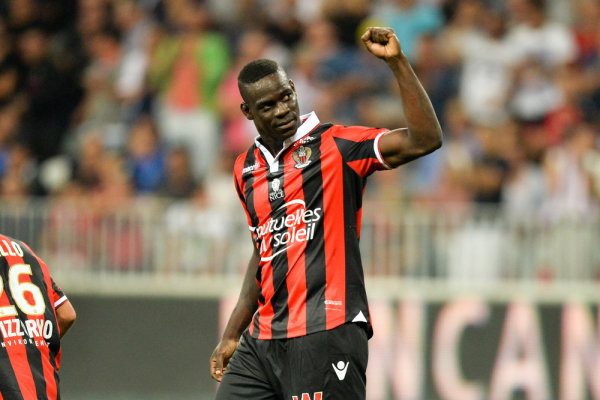Love it or hate it, money makes the world go round, and that is proving more and more relevant within football as time goes by.
So far this summer, Russian billionaire Dmitry Rybolovlev has invested heavily into French club AS Monaco FC by purchasing several quality players including the much reported transfer of Radamel Falcao, James Rodriguez and Joao Moutinho to name a few.
This may seem extortionate, but he is only following suit of many other rich russians investing in European football.
As many people who follow the Premier League will know, Chelsea FC owner Roman Abramovich changed the face of English football by paying big transfer fee’s for up and coming players coming into there prime along with big wages to convince them to jump ship. Helping grow the clubs reputation by having success in the short term and using that as a springboard and help consistently bring in top quality players.
You may think it stops there, but that is just the top of the iceberg.
In the heart of the Capital is Russian oil and gas giant Gazprom majority owned by the Russian Government. In 2006, they acquired Russian Premier League club Zenit Saint Petersburg and after reporting profits of over $100 billion you wouldn’t be surprised to see the board allowing first team manager Luciano Spalletti to splash the cash, and splash the cash he did. On the 3rd of September 2012 £35m was splashed out for Brazilian international Hulk, along with young Belgian Axel Witsel.
However, it doesn’t stop there for Gazprom. Bundesliga club FC Schalke 04 announced a sponsorship with Gazprom, reported to be worth over £100m, increasingly spreading Russia’s image and money across Europe helping improve leagues with more money flowing throughout, and also giving funds to FC Schalke 04 to attract bigger players, for example Spanish legend Raul.
More recently Gazprom now sponsor Chelsea FC on a similar deal to FC Schalke 04 which can be seen as unsurprising considering the obvious link within ownership.
Although, something that has created much uproar is Gazprom sponsoring the prestigious UEFA Champions League, which raises questions of conflict of interest with Gazprom having so much power and influence throughout the European game, and already before the sponsorship was agreed with UEFA a lot of Gazprom money running in and out.
FIFA have noticed this steely commitment too, with handing them the 2018 World Cup may I add.
All this shows how much power and influence Russia have on the European game today, and how its been a slow and silent progression throughout hiding under the names of Russian billionaires and organisations.
Written by James Clark
Follow James on Twitter @JamesMRClark
Please like O-Posts on Facebook
You can follow O-Posts on Twitter @OPosts
You may also like...
-
 Football News 24/7
Football News 24/7 -
Premier League
Mourinho needs to find a way to play both Sanchez and Martial
O-Posts Team | February 7, 2024In the three games Alexis Sanchez has played for Manchester United, it’s worth noting that only one has seen Anthony Martial play in the same starting line-up as the...
-
O-Posts Team | February 5, 2024
Arsenal’s Mkhitaryan-Sanchez deal set to be the first of many
-
O-Posts Team | February 5, 2024
Failing to recruit a defender may cost Arsenal a Champions League spot
-
O-Posts Team | February 4, 2024
EPL Predictions: Liverpool and Tottenham to share the spoils at Anfield?
-
O-Posts Team | February 3, 2024
REPORT: Arsenal target may be available for free this summer
-
 O-Posts Team | February 3, 2024
O-Posts Team | February 3, 2024
-
 O-Posts Team | February 3, 2024
O-Posts Team | February 3, 2024
-
O-Posts Team | February 5, 2024
-
Ligue 1

Mario Balotelli: The Redemption and Rejuvenation of a Liverpool flop
O-Posts Team | January 19, 2024There are two different views on Mario Balotelli from Liverpool supporters: 1- Balotelli was a panic signing for the club. 2- The Italian forward wasn’t given enough chances by...
-
 O-Posts Team | December 18, 2023
O-Posts Team | December 18, 2023
Neymar: Why the ex-Barca star must stay away from Real Madrid
-
O-Posts Team | October 28, 2024
Immensely talented, but Mbappe is not this year’s ‘Golden Boy’
- O-Posts Team | September 19, 2024
-
O-Posts Team | September 14, 2024
PSG: Why the Parisians’ strikeforce is ready to dominate Europe
-
O-Posts Team | August 18, 2024
PSG: Why the Parisians are genuine Champions League favorites
-
O-Posts Team | August 15, 2024
Neymar: Why the Brazilian deserves respect for his move to PSG
-
asdasd
Where the action’s
Copyright © 2013 Hot Topix Theme. Theme by MVP Themes, powered by Wordpress.
0 comments